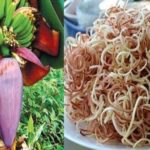Fever and Pain Medication
During the rainy season, illnesses such as flu, colds, and dengue fever can occur. Common symptoms of these illnesses include fever and body aches.
It is advisable to have fever-reducing and pain-relieving medications such as paracetamol in different doses for children and adults. This medication can be used in cases of high fever to prevent seizures and other complications arising from prolonged high fever. The dosage for paracetamol is 10-15mg/1kg of body weight, and it should be administered every 4-6 hours.
Additionally, you may want to have ibuprofen as another fever-reducing and pain-relieving option. Ibuprofen can be used to treat fever and pain associated with common illnesses in children. However, it is important to note that children with asthma, liver or kidney issues, a high risk of bleeding, gastrointestinal conditions such as ulcerative colitis or Crohn’s disease, or chickenpox should not take ibuprofen.
Individuals with a fever should stay hydrated and monitor their temperature closely. If the fever persists or does not respond to medication, seek medical attention immediately.
Digestive Medication
Flooding can contaminate food and water sources, increasing the risk of digestive issues, especially in flooded areas. The elderly, children, and those with weak digestive systems are particularly susceptible to these illnesses, which include typhoid fever, diarrhea, dysentery, food poisoning, and infections caused by E. coli or Campylobacter.
It is recommended to have some common digestive medications on hand, such as berberine (a plant-derived antibiotic for diarrhea), smecta or loperamide 2mg, and oral rehydration solution (ORS) in either powder or pre-mixed form. Always read the medication instructions carefully before use, and seek immediate medical attention if symptoms worsen or if you experience severe dehydration, bloody mucus in vomit or stool, persistent vomiting, or abdominal cramps.

It’s important to have a basic supply of medications on hand during the rainy season.
Topical Medication
Floodwaters can contaminate water sources, leading to skin infections such as athlete’s foot, scabies, and folliculitis. If left untreated, open wounds can become infected and spread.
It is advisable to have disinfectant solutions and topical medications such as iodine tincture, hydrogen peroxide, gentian violet, methylene blue, chlorhexidine, and chloramin B. These are used for disinfecting after wading through floodwaters or coming into contact with contaminated water. Additionally, have some mild topical medications to soothe, moisturize, and promote the healing of wounds.
Eye Drops
Eye infections can also occur after flooding due to contaminated water sources. One of the most common eye infections after floods is conjunctivitis (pink eye), which can lead to complications such as filamentary keratitis and corneal opacities. If left untreated, these infections can cause scarring, reduced vision, or even blindness.
In addition to conjunctivitis, other eye conditions such as acute dacryocystitis, dacryocystitis, pseudomembrane formation, corneal scarring, and dry eye can cause discomfort. To prevent eye infections, it is recommended to use 0.9% saline solution for daily eye, nose, and throat irrigation, especially after coming into contact with contaminated floodwaters.
Chronic Disease Medication
If you or a family member has a chronic illness that requires prescription medication, it is advisable to consult your doctor about obtaining enough medication for 2-4 weeks. This will help ensure access to medication during and after the rainy season, when obtaining prescriptions may be more challenging.
The Ultimate Flower: A Natural Remedy for Optimal Health
Banana blossom, also known as banana heart, is a culinary staple and a medicinal treasure in Southeast Asian cultures. This unique ingredient, derived from the banana plant, offers a plethora of benefits that extend beyond its delicious flavor. In traditional medicine, banana blossom is revered for its therapeutic properties, believed to treat a range of ailments.
The Morning Beverage Trio: A Healthy Habit or a Nighttime Toxin?
“Starting your day with a glass of warm lemon water is a healthy ritual, but drinking certain beverages in the evening can be detrimental to your health. Some drinks are best enjoyed in the morning, while others are better left for daytime consumption if you want to maintain your health and well-being.”





































